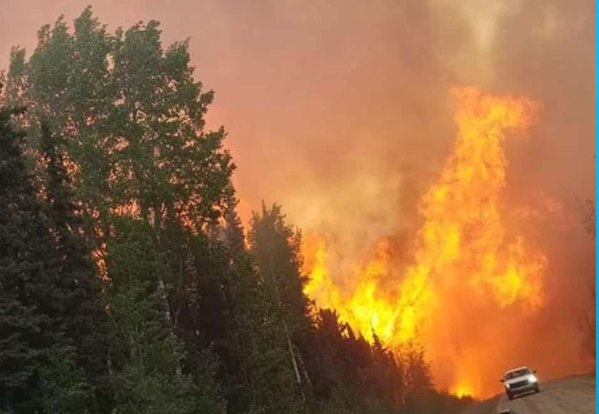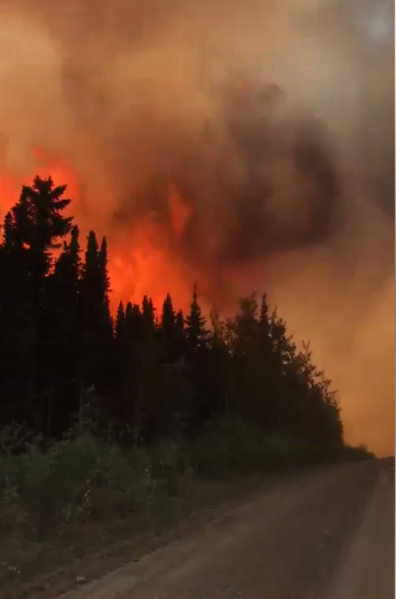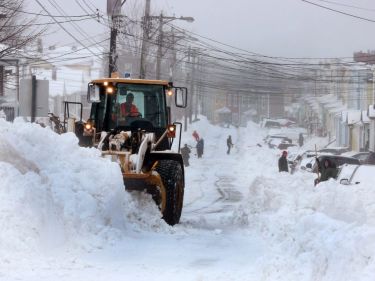
Thick-headed and resolute governments dictate that a Texas company’s pipeline expansion is a matter of Canada’s national interest.
As Clarence Bolt of Sidney BC wrote to the Globe and Mail:
Justin Trudeau and Rachel Notley have weaponized the words “national Interest,” implying that accepting a dirty, high-carbon product, extracted with huge amounts of energy, diluted with toxic chemicals, to create a product with uncertain cleanup properties, shipped over land and pumped into tankers plying Canada’s coast is in the “national interest.”
Opposition is unpatriotic.
…Instead of using the “national interest” as a sledgehammer, engage in evidence-based conversations: the actual product (dilbit), the carbon footprint, pollution, job numbers, risks, alternative solutions.
Committing billions of taxpayers’ dollars to ensure the public carries all economic risks of the Trans Mountain project requires a commitment to climate change denial similar to that of Trump’s EPA assassin Scott Pruitt. The political choice is financially unsound.
Positions of Canada and Alberta show absolute ignorance of today’s economic world. An excellent report by award-winning journalist Paul McKay, published by The Energy Mix, makes this clear. Excerpts follow.
The law of unintended consequences may soon cause serious collateral damage to Alberta’s tar sands/oil sands ambitions, and the planned Trans Mountain and Keystone XL pipelines.
The United Nations International Maritime Organization (IMO) recently approved new, much stiffer fuel standards for the 50,000 ocean-going vessels which currently burn low-grade, high-sulphur oil. Known as Bunker C, it is cheap and dirty. An estimated four million barrels per day are burned in all manner of merchant ships, including oil tankers. The related greenhouse gas emissions roughly equal those from all sources in Germany.
But the days of Bunker C are numbered. The fatal bullet will be sulphur-tipped. By 2020, the IMO has mandated that the commercial fleets it represents can only buy and burn ship engine oil with a sulphur content of 0.5%. That is a 700% reduction from the current average. It has been estimated that the 15 largest ocean vessels currently emit as much sulphur annually as all of the world’s cars.
And as that massive shift unfolds, Alberta’s tar sands/oil sands production will probably be in the crosshairs.
…about 75% of current Bunker C production will disappear far sooner than thought possible even a year ago.
Alberta bitumen will likely be a big loser, because it contains on average some 11 times more sulphur than conventional crude, and results in a high ratio of low-grade Bunker C when refined. As of 2020, according to industry reports, U.S. refinery purchases of diluted bitumen for ship fuel will begin slowing to an eventual trickle…
Last year, Marathon sold off its Alberta tar sands/oil sands assets for $2.5 billion, and took a related $5-billion write-down on its balance sheet. On the same day, Royal Dutch Shell sold its tar sands/oil sands assets for a combined cash and share value of $5.8 billion. Earlier, ExxonMobil took a write-down on tar sands/oil sands tracts said to hold 2.8 billion barrels. Other multinationals which have recently abandoned the tar sands/oil sands include the French conglomerate Total S.A., Houston-based ConocoPhillips, and Norway’s state-owned oil company, Statoil.
Most, like Marathon, have since bought into oil plays and projects which feature low-sulphur, low-carbon, low cost per barrel deposits linked to existing pipeline and refinery systems…
There is no chance an Aframax oil tanker leaving Vancouver with a maximum load of 580,000 barrels of bitumen can compete on price with a supertanker coming from Saudi Arabia to the same Pacific port with two million barrels in a single cargo.
Nor can Alberta bitumen match the quality and price of low-sulphur crude delivered by Saudi supertankers to its new or planned Asian refineries. That means being totally shut out of 1.5 million barrels per day in potential new exports, just to Malaysia and India.
Prospects for Alberta bitumen sales to China are equally bleak, for multiple reason…
Sometimes answers to very puzzling questions, particularly those involving politicians, can stay obscured by hiding in plain sight.
In the case of Alberta’s expansive tar sands/oil sands ambitions, and the related Trans Mountain and Keystone XL pipelines, two glaring questions have been missing from all the debates, drama, and demonizations:
Exactly which Asian countries or refiners have signed long-term contracts to purchase more Alberta bitumen for decades to come?
Exactly how much have they committed to pay per barrel delivered?
A thorough scouring of documents filed by Kinder Morgan to win the National Energy Board’s conditional approval for its Trans Mountain pipeline expansion shows these questions were of no interest to the pipeline company. It did not ask them, nor did the NEB. So no specific evidence was supplied by the tar sands/oil sands producers…
This is the uncontained Tommy Lake wildfire, one of many burning in northeast BC during Spring 2018.


At the same time, weather was different in Newfoundland,

From Scientific American:
“A changing climate leads to changes in the frequency, intensity, spatial extent, duration and timing of extreme weather and climate events, and can result in unprecedented extreme weather and climate events,” reports the Intergovernmental Panel on Climate Change (IPCC), an independent group of leading climate scientists convened by the United Nations to provide the world with a clear scientific view on the current state of knowledge in climate change and its potential environmental and socio-economic impacts.
Categories: Alberta, oil and gas, Trudeau, Justin




Feb 2019: little prince Justin and friends $$$$, through the National Energy Board, have green lighted the Kinder-Morgan Trans Mtn – Bitumen / Dilbit pipeline “for National Economic Interests”
There are NO firm purchase contracts for the stuff. USA is awash in Fracked oil / gas.
Kinder and Morgan, were two executives of the largest resource ponzi Scheme: remember Enron!! The two K and M were give 25Million $$, plus Texas Oil & Gas – later to own the Cdn Trans Mountain Pipeline – now, 2019 CANADIAN OWNED – 3 times market price and all the rust!
LikeLike
http://www.cbc.ca/news/canada/british-columbia/crews-cleaning-up-oil-spill-at-kinder-morgan-station-north-of-kamloops-b-c-1.4680244
LikeLike
In the national interest? OMG. Are they on the trump train or something. trump is saying cars need to be made in the U.S.A., in the cause of national interest.
What Notley and Trudeau need to come to grips with is what is truly in the national interest and that is clean drinking water in all Canadian communities. adequate health care and dental and prescription in all communities in Canada along with a decent education. A reduction in child poverty is in the national interest.
some may argue we need oil/tar to produce the money to obtain the above listed items, however, Kinder morgan is not the way to make money. The good old boys of Kinder Morgan are Morgan and Kinder and they’re from that lovely company which cost billions in losses and so are the rest of their Kinder morgan gang.
what we need is refineries in Canada, which employ Canadians and a reduction in the price of gas Canadians pay. that would leave a lot more money in the pockets of Canadians.
why should we destroy our country so foreign interests can make money. The few jobs these things provide are short lived but the side effects will hurt the environment for ever.
LikeLike
I agree. If Alberta had forced corporations through tax policy to process the bitumen there, the problem would not have such a disastrous outcome.
I have to think of all the steel processed for the auto sector, as an example. The amount of energy used for all the things we use and take for granted is massive. Acid rain was a huge problem in eastern North America.
The tide is turning, but the speed it turns at will not be like lightning. I’m glad that the chickens are coming home to roost but Alberta is a major power to the Canadian economy. I hope everyone is prepared for the related economic affect a defunct tar sands brings to healthcare, education, transportation etc, when this happens.
LikeLike
This final endgame for Aberta is the result of 70 years of unfettered so-called free enterprise, oil, and conservative governments afraid of planning for now.
I feel sorry for Rachel Notley having to do what the same people who got them where they are, want.
Politically, the NDP in Alberta is struggling to retain power to implement programs and policies that will clean up the mess left there.
If the NDP loses power there, it will never be re-gained.
This whole thing is a disaster however you slice it.
LikeLike
I’m curious what the specific gravity of Dilbit is? I’m sure our quantum computing, genius PM can tell us.
LikeLike
In 2011 the pollsters reported that two thirds were against Trans Mountain to one third For Trans Mountain Pipeline:
Vancouver Sun, October 10, 2011 (typo highlighted in Bold)
“Two-thirds don’t Trans Mountain want pipeline twinned, poll finds
B.C. gets risks, few benefits: NDP MP”
***********************************************************
The very next day:
Vancouver Sun, October 11, 2011
“Only 31% of B.C. residents want Trans Mountain pipeline twinned, poll finds
B.C. gets risks, few benefits: NDP MP”
************************
Could it be that the change of heart of the public’s opinion is the sudden influx of ‘residents’ to the West Coast?
April 2018 Angus Reid poll
One third against the pipeline
http://angusreid.org/kinder-morgan-transmountain/
LikeLike
Greed has no limits. Sanity rarely plays a role.
LikeLike
“It has been estimated that the 15 largest ocean vessels currently emit as much sulphur annually as all of the world’s cars.”
“Alberta bitumen will likely be a big loser, because it contains on average some 11 times more sulphur than conventional crude, and results in a high ratio of low-grade Bunker C when refined. As of 2020, according to industry reports, U.S. refinery purchases of diluted bitumen for ship fuel will begin slowing to an eventual trickle…”
Important points to pay attention to.
What would we think if it were, say, 1914 and the federal government was about to bankroll horseshoe and saddle factories in every major Canadian city?
LikeLiked by 2 people